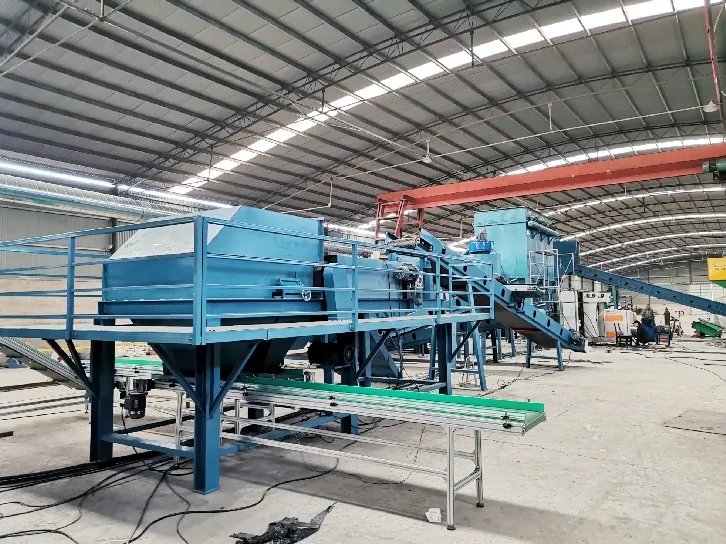

ታኅሣ . 24, 2024 08:39 Back to list
The Importance of Metal Shredders in Recycling
In today's fast-paced industrial world, the effective management of metal waste is crucial for a sustainable future. This is where metal shredders play a vital role. These powerful machines are specifically designed to break down large metal objects into smaller, manageable pieces, paving the way for efficient recycling and recovery of valuable materials.
Metal shredders come in various sizes and designs, tailored to handle different types of metal waste. They are extensively used in recycling facilities, foundries, and manufacturing plants. The primary purpose of a metal shredder is to process scrap metal, which includes everything from old automobiles and appliances to leftover metal pieces from manufacturing processes.
How Metal Shredders Work
Metal shredders operate using a series of rotating blades or hammers that are engineered to cut, crush, and shear the metal into small fragments. The shredding process can vary based on the type of metals being processed, but the general principle remains the same. Once the metal is fed into the machine, it goes through a series of reductions in size. The end result is often a mix of small metal pieces that can be easily transported and recycled.
These shredders can handle a wide array of metals, including ferrous and non-ferrous types. Ferrous metals, such as steel and iron, are typically more magnetic and are easier to reclaim. Non-ferrous metals, such as aluminum, copper, and brass, present different challenges but are equally important. Metal shredders need to be capable of adapting to these challenges to maximize recovery rates and minimize waste.
The Benefits of Metal Shredding

1. Environmental Impact One of the most significant benefits of using metal shredders is their positive impact on the environment. By recycling metal, we reduce the need for new raw materials, which often involves environmentally damaging mining practices. Furthermore, metal shredding helps in minimizing landfill waste, contributing to a more circular economy.
2. Cost Efficiency Recycling metals through shredding processes can be more cost-effective than extracting and processing new materials. The energy saved in recycling is substantial, allowing industries to benefit from lower production costs and reduced energy consumption. Companies that engage in metal recycling can also generate revenue from the sale of processed scrap, making it a financially viable option.
3. Safety The safe handling of large metal objects is a crucial consideration in industrial environments. Shredders help in breaking down hazardous or bulky metal materials to sizes that can be more easily and safely managed. This reduces the risk of accidents during transportation and handling in recycling facilities.
4. Quality Control Metal shredders can enhance the quality of recycled materials. By finely shredding the metals, impurities can be more easily removed, resulting in cleaner, high-quality scrap that can command better prices in the recycling market. This quality assurance helps in maintaining the integrity of recycled materials for reuse in new products.
Conclusion
In conclusion, metal shredders are indispensable tools in the modern recycling industry. They not only facilitate the efficient processing of metal waste but also contribute to environmental sustainability, economic savings, and improved safety. As industries continue to innovate and improve recycling technologies, metal shredders are set to evolve, becoming even more efficient and effective in managing the ever-growing volume of metal waste. Embracing these advancements can lead to a cleaner environment and a more sustainable future for all.
Latest news
Troubleshooting Common Eddy Separator Problems
NewsJul.04,2025
The Role of Metal Recycling Plants in Circular Economy
NewsJul.04,2025
The Impact of Recycling Line Pickers on Waste Management Costs
NewsJul.04,2025
Safety Features Every Metal Shredder Should Have
NewsJul.04,2025
How Industrial Shredders Improve Waste Management Systems
NewsJul.04,2025
How Cable Granulators Contribute to Sustainable Recycling
NewsJul.04,2025